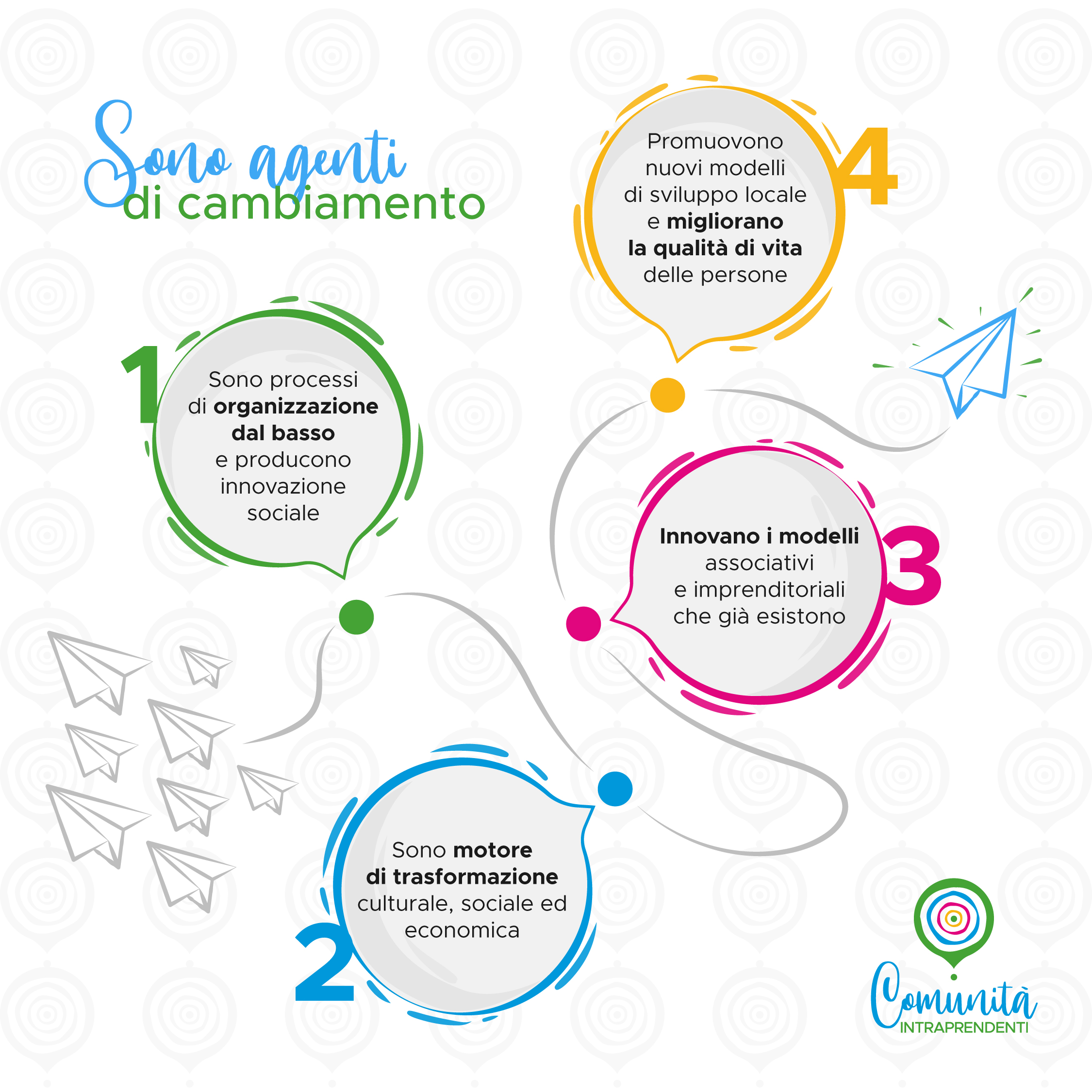Urban and social regeneration spaces in Italy in the new Euricse report
Community hubs are multifunctional and versatile spaces that host a variety of activities and social actors. Starting from local needs, these places develop services for the community, promoting active participation in a perspective of co-creation and enabling new projects. In Italy, the phenomenon is continually expanding, with a current clear geographic prevalence of experiences in the northern part of the country.
The dedicated report, available on the Euricse website, was presented during a webinar on Thursday, July 11, featuring Euricse researchers and testimonies from across the Peninsula.
The research conducted by Euricse, coordinated by Jacopo Sforzi, aims to explore the evolution of community hubs in Italy in recent years. The study is part of a multi-year project on ‘Enterprising Communities’, which has mapped the most widespread forms of self-organised local entrepreneurship. Community hubs are one of the categories identified, along with community enterprises, collaborative pacts, neighbourhood porter services, solidarity shops, communities that support agriculture (CSAs), food cooperatives, renewable energy communities and FabLabs.
The recently published study, “Community Hubs: multifunctional spaces between urban and social regeneration” outlines the unique features of community hubs, analyzes their geographic distribution, sectors of activity, and development directions over time. Through redevelopment projects, community hubs return spaces that had lost their original function over the years to the community, transforming them into multifunctional places capable of generating new socio-economic value through active community participation. These hubs act as incubators for urban and social regeneration processes, involving the community through both informal (such as meetings and town assemblies) and formal (local press, social media, web) tools.
The phenomenon continues to grow both numerically and in terms of local policy recognition. Compared to the data from the first General Report “Enterprising Communities in Italy,” up to the end of 2021, community hubs saw a 140% increase by the end of 2023. As for their distribution, of the 140 community hub experiences mapped by December 2023, 71.7% are located in the North of the country, 7.5% in the Center, and 20.8% in the Islands and South.
Community hubs share the same goals but adopt different strategies based on the needs and interests of their community and the socio-institutional context in which they are born and operate.
Prevalent sectors of activity include coworking, aggregation and sociality, welfare, culture, urban regeneration, and education. In recent years, the welfare sector has become increasingly significant, making community hubs local social presences that provide new welfare services (job orientation, inclusion of disadvantaged individuals, Italian courses for foreigners, counselling services, etc.).
The empirical analysis, focusing on fourteen community hubs, highlighted their ability to harmonize urban and social regeneration processes by introducing innovations in the urban environment based on residents’ daily needs. The authors conclude the report by reflecting on the crucial importance of obtaining formal recognition from Public Administration to fully realize the potential of these initiatives. This step is essential to promote a new model of urban governance based on cooperation among various public and private actors in the community, aiming to establish new models of shared administration.
The Euricse report is structured into several sections:
- General information on community hubs in Italy: definition, geographic distribution, and main sectors of activity.
- Presentation of the empirical analysis results focusing on governance models, participation tools adopted to engage communities, and relationships with the surrounding area.
- An in-depth analysis through five case studies: CasciNet, Cult-Community hub, MareMemoriaViva, ViviamoLaq, and Beeozanam.
- Conclusions and recommendations for promoting community hub initiatives as an inclusive model of urban governance.
At the report presentation event, along with the project’s scientific coordinator Jacopo Sforzi (Euricse), and researchers Caterina de Benedictis (Euricse and University of Enna “Kore”) and Silvia Scarafoni (Euricse and University of Perugia), contributions were made by Claudio Calvaresi (Avanzi), Pasquale Bonasora (Labsus), Erika Capasso (Municipality of Bologna – Case di Quartiere), and Davide Di Muri (Municipality of Brindisi – Case di Quartiere). Territorial experiences were presented by Emanuela Saporito (Beeozanam – Turin), Cristina Alga (Mare Memoria Viva – Palermo), and Paola Bulletti (Fondazione Mps – Culture Ibride – Siena).
